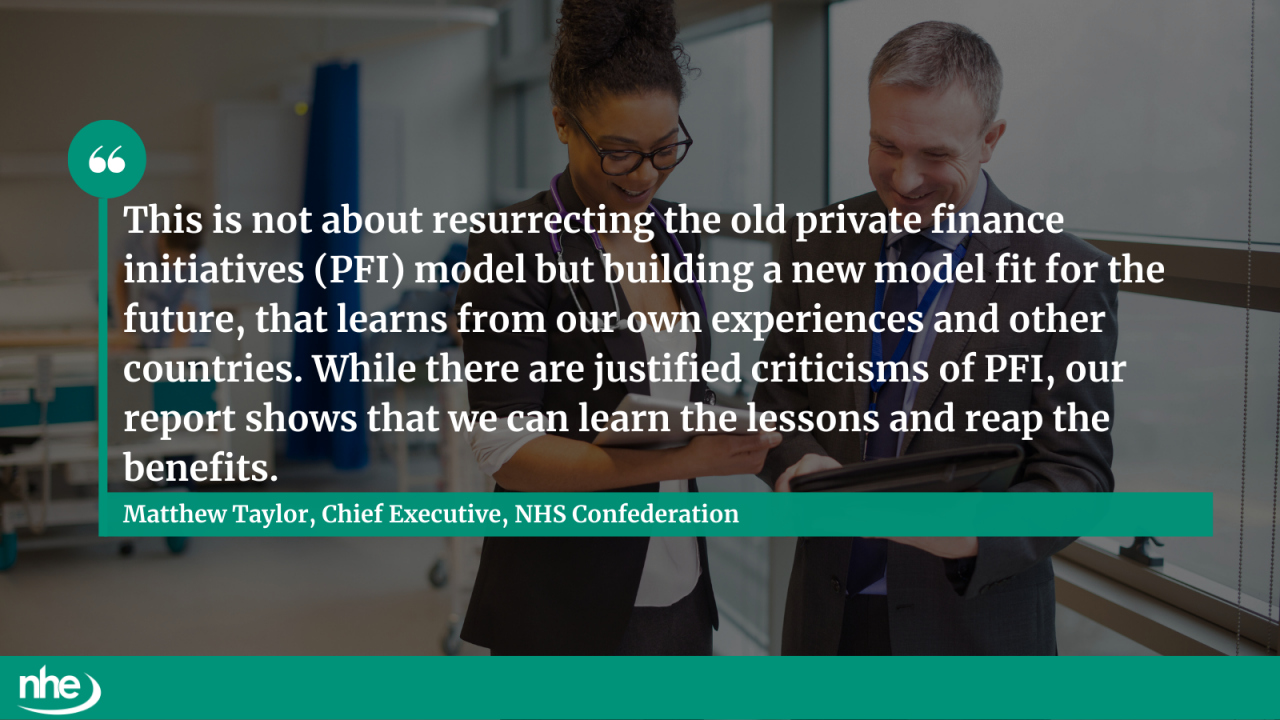A new report from the NHS Confederation has called for the adoption of international public-private partnership models to inject much-needed capital into the NHS and modernise its crumbling infrastructure.
The report, titled Towards a new co-investment model: what is next for NHS public-private partnerships?, identifies seven successful PPP frameworks used globally that could be adapted for England. These models have proven effective in delivering healthcare infrastructure on time and within budget, offering a potential solution to the NHS’s long-standing capital investment shortfall.
One proposed approach involves leveraging the UK government’s National Wealth Fund, similar to the Welsh Development Bank’s investment in Cardiff’s Velindre Cancer Centre. The Confederation argues that without private investment, the NHS will struggle to meet government targets on cutting waiting times and delivering 21st-century healthcare facilities.
The report highlights that many major hospital builds in England have relied on private finance, while publicly funded projects like the New Hospital Programme have faced delays and budget constraints. It also outlines key recommendations to ensure PPPs deliver value for money, including:
- A national framework for NHS trusts to develop localised PPP models
- Treasury oversight to manage investor transitions
- Adoption of low-dispute contract models from overseas
Matthew Taylor, NHS Confederation Chief Executive, commented:
“The NHS has suffered from chronic, decades long underfunding by successive governments in its estate and infrastructure. The result is a £14 billion maintenance backlog that hampers the delivery of safe and timely patient care. In some hospitals, as much as one day every week of staff time is wasted due to failing estate.
“To ensure the NHS can deliver on the ambitions of the government’s Ten-Year Health Plan, more capital investment is crucial. Private investment is one of the only ways to invest the capital sums needed to ensure quality 21st century healthcare facilities.
“This is not about resurrecting the old private finance initiatives (PFI) model but building a new model fit for the future, that learns from our own experiences and other countries. While there are justified criticisms of PFI, our report shows that we can learn the lessons and reap the benefits.
“We welcome the government’s commitment to considering a new public-private partnership (PPP) model for the NHS’s nascent neighbourhood health centres at the forthcoming Budget, but we need it go much further and promise the same to hospital trusts and other parts of the NHS.”

With the autumn budget approaching, the Chancellor is expected to decide whether to greenlight a new wave of PPPs to support the government’s Ten-Year Health Plan, including the creation of neighbourhood health centres.
The NHS Confederation is urging the government to go further by allowing PPPs not just for new builds, but also for wider NHS services, arguing that private capital may be the only viable route to boost infrastructure investment amid tight public finances.
Image credit: iStock



















